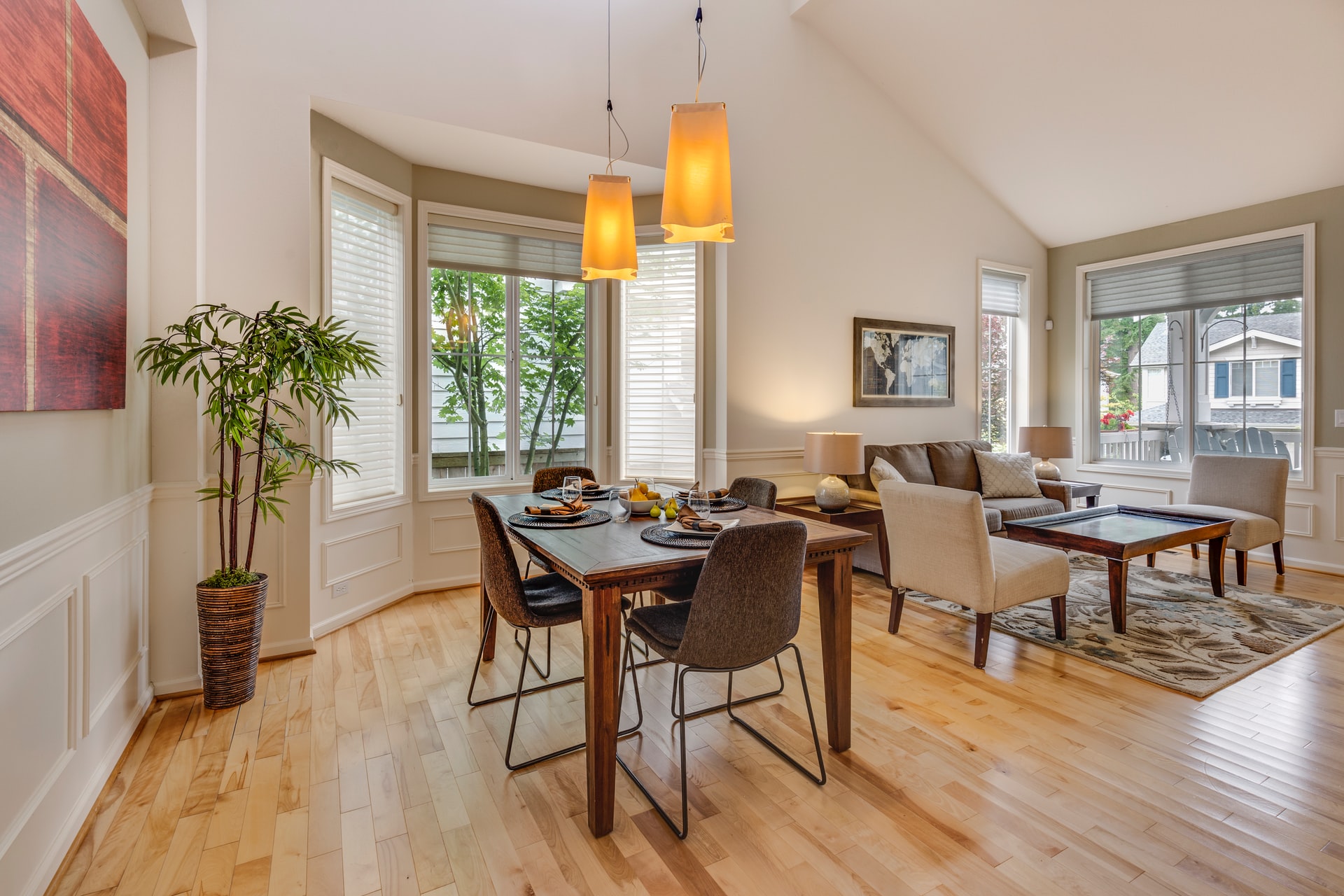
Photo by Francesca Tosolini on Unsplash
A snug and warm home on a winter night is a great gift, as is a cool, fresh home on a hot and sticky day. To keep your home temperature no matter the weather, making sure that the seal on your home is efficient and your HVAC is functioning well is critical.
Check Your Windows
Whenever possible, invest in thermal windows with an air pocket that will limit the transmission of air through the glass. Depending on where your windows are located, a reflective coating on the outside of your windows can keep heat from direct sunlight out of your home.
If you cannot update your windows at this time, make sure that you use them to best effect each day. Keep them covered in the heat of summer, and make sure that you use thermal drapes and keep them closed overnight. On a winter day, open up those drapes and let the heat of the sun warm up the air in your home.
Use a Programmable Thermostat
With a programmable thermostat, you can allow your home to cool down a bit more overnight in the winter, then turn the heat on an hour before you and your family get up.
If you know the coming day will be very warm, consider turning down your AC after the sun goes down so your AC can get ahead of the coming warmth. Do not let your home warm up during the day and try to remove all the warm air when you get home from work. Warm air will hold more moisture than cool air and add to your misery.
Get Your HVAC Serviced
Contact an air conditioner Edmonton professional to make sure that your AC is running as efficiently as possible. On your own, make sure you keep your filters changed inside your home and make sure you keep plants off your HVAC unit outside.
If you notice that your AC unit is not working as effectively as it has in the past, it may need coolant added or it may need the fins on the unit cleaned out. Dust, seeds, and other debris can clog up your unit and limit airflow. If your AC unit is running hot, it is not running efficiently.
Change Out Lightbulbs
If you still have incandescent lights in your home, swap them out for LED of compact fluorescent bulbs. Not only do these bulbs take less power and expel less heat but they last up to 12 times longer. If your light fixtures require halogens, try to use them only in the winter. Halogens generate a tremendous amount of heat. While some users do not like the color of the light generated by the first generation of compact fluorescent bulbs, consider using a colored glass shade or filtered shade to warm up the tone of the light.
If you have a windowsill that has room for a small solar panel, consider investing in a few solar lights that you can use to generate ambient light in the evening. If your home is small, you may be able to avoid using your light switches at all in the evening.
Plant Deciduous Trees
Pay particular attention to where the sun hits your home on a daily basis. Plant a deciduous tree that will grow up and shade as many windows on your home, particularly to the east and west, on the hottest days of summer.
A deciduous tree with a nice big canopy can reduce the amount of heat that builds up in your home during the hot summer months. You can plant a flowering tree for lots of spring color, or focus on fall foliage to have a bright, beautiful tree as temperatures drop.
Fruit trees are not recommended for shade. Fruit trees will work, but they tend not to live as long as a canopied shade tree and will need to be replaced more often than a proper shade tree.
Using less energy does not have to mean making a huge money investment. Getting things serviced regularly will reduce the risk of a mechanical failure, and proper window coverings can also keep your energy consumption low. Change out lightbulbs as they fail. Consider investing in a few solar lightbulbs to reduce your power consumption even further.
You may also like
Great Ways to Make Your Home More Eco-Friendly
6 Ways to Bring Sustainability to Your Everyday Life
Features of an Energy-Efficient Home
Decor Guide: Styling Your Home Using Natural Elements
